Realizing Children’s Rights in Guinea
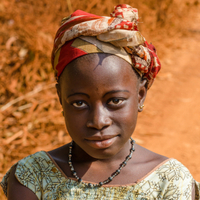
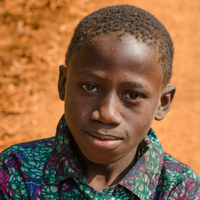
Guinea, also referred to as Guinea Conakry to distinguish it from Guinea-Bissau, is committed to respecting, protecting, and promoting the rights of Guinean children. Despite all efforts, especially legislative efforts, the country faces many issues that prevent Guinean children from fully enjoying their rights.

Children’s Rights Index: 4,93 / 10
Black level : Very serious situation
Population: 12.7 million
Pop. ages 0-14: 43 %
Life expectancy: 61 years
Under-5 mortality rate: 99 ‰
Guinea at a Glance
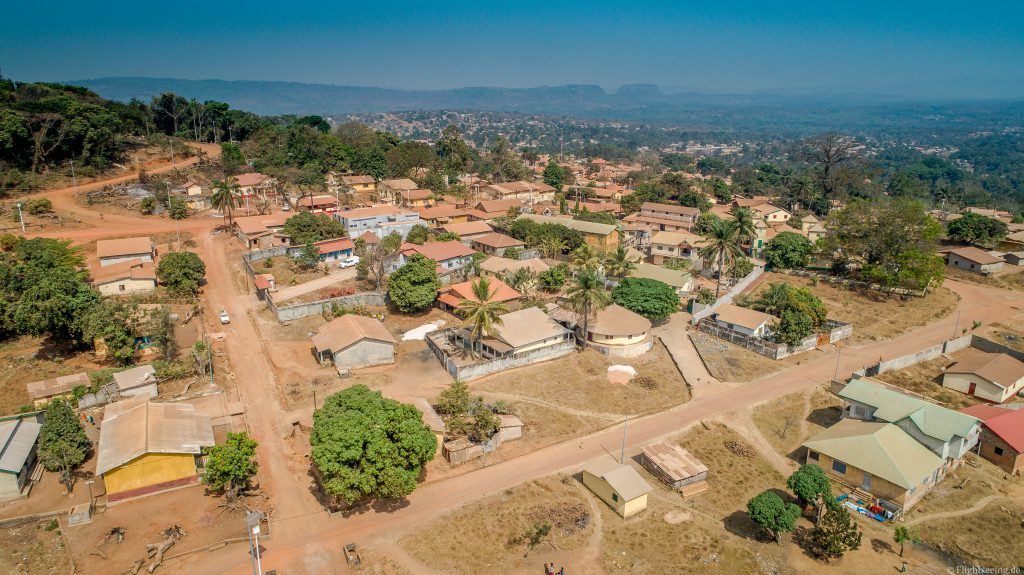
Guinea is a poor country. According to the Human Rights Council, it needs to tackle poverty, and should take into account the needs of children, who are also affected by this issue (Conseil des droits de l’homme, 2020). Food insecurity, along with issues concerning the right to water and sanitation, are highly prevalent in the country. These problems particularly affect rural areas, highlighting the divide between urban and rural areas (Comité des droits économiques, sociaux et culturels, 2020). Similarly, the right to housing and the right to education are also of concern (Comité des droits économiques, sociaux et culturels, 2020).
As has been remarked several times by different UN Committees in their concluding observations, the prevailing issue facing Guinea is the large gap in resources to allocate to programmes for human rights in general, and to the implementation of children’s rights in particular. Economic inequality and poverty are extremely common in the country.[1]
Status of Children’s Rights [2]
At the international level, Guinea is a signatory member of the Convention on the Rights of the Child. In 2011, the country ratified the Optional Protocol to the Child’s Rights Convention, concerning the Sale of Children, Child Prostitution and Child Pornography, 2000. Four years later it also adhered to the Optional Protocol to the Convention relating to the Rights of the Child, on the Involvement of Children in Armed Conflicts, 2000 (Comité des droits de l’enfant, 2019). Some additional efforts are still required. Notably, Guinea has not yet ratified the Optional Protocol to the Convention on the Rights of the Child on a Communications Procedure, 2011 (Conseil des droits de l’homme, 2020).
Children’s rights in Guinea are regulated by the Children’s Code of Guinea. A revised version of this Code was adopted on 3 December 2019 after two years of work. As a result, the provisions included in international treaties and UN recommendations are now an integral part of the national legal framework, strengthening the system of protection of children’s rights in Guinea (Balde, 2019). The Children’s Code incorporates all the provisions of the Convention on the Rights of the Child (Conseil des droits de l’homme, 2020).
Moreover, the Penal Code includes provisions relating to children, criminalising major children’s rights violations such as the recruitment of child soldiers, which is treated as a war crime (Conseil des droits de l’homme, 2020). Significantly, the Civil Code has been reformed recently in order to reduce gender-based discrimination, which affects girls and boys.
On the other hand, areas that are strongly connected to children’s rights, such as health and education, are still in urgent need of financial, human, and technological resources. Coordination across different sectors is also necessary (Comité des droits de l’enfant, 2019), which would permit a holistic implementation of the rights of children. Finally, awareness-raising campaigns and training for professionals who provide services to children in any capacity are ultimately essential for the implementation of children’s rights (Comité des droits de l’enfant, 2019).
Addressing the Needs of Children
Right to Education
The Republic of Guinea has improved access to education through the implementation of an “Education for all” programme. The programme is designed to grant access to quality education to all children regardless of their socio-economic background (Conseil des droits de l’homme, 2020). However, the right to education faces several barriers in Guinea. The public education system lacks the budget required to compete with the network of private schools proliferating in the country. Public school infrastructures are largely precarious due to an insufficient number of teachers, a lack of educational resources, and inadequate access to water and sanitation in school facilities.
The presence of a dual education system increases the inequalities among children that arise from their social and economic status, as well as gender-based inequalities and the inequalities between urban and rural children (Comité des droits de l’enfant, 2019). The Committee on the Rights of the Child has questioned the quality of teaching, especially highlighting that a considerable number of teachers in Guinea lack adequate qualifications (Comité des droits de l’enfant, 2019). Moreover, it is at school that gender-based insecurity and violence are more likely to occur. Girls are subject to sexual harassment and abuse by teachers (Comité des droits de l’enfant, 2019).
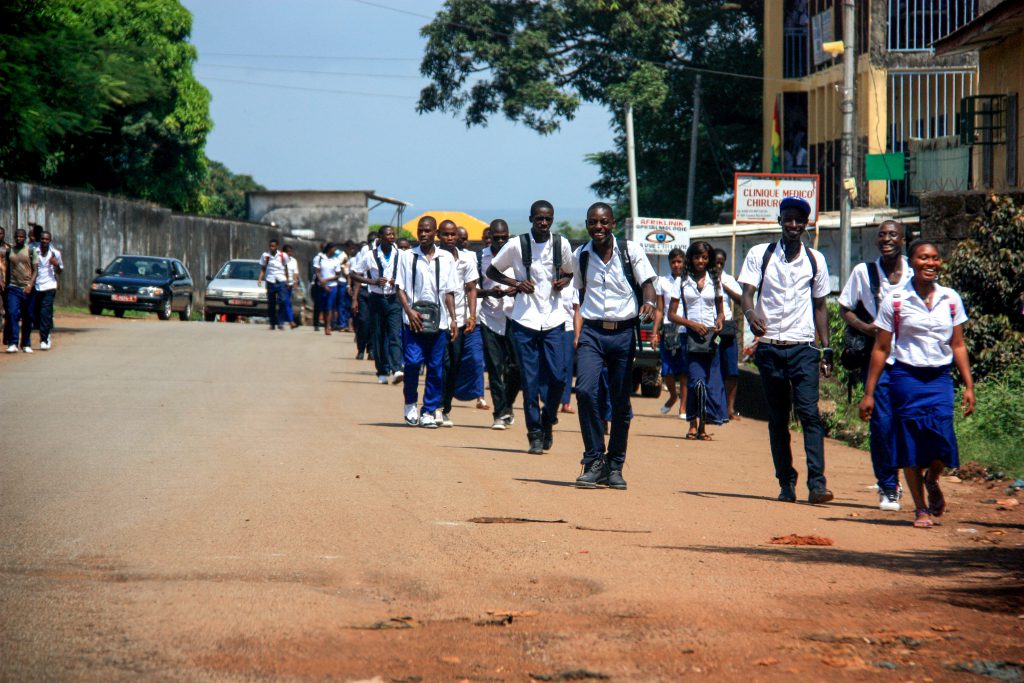
It is also very difficult to keep teenage mothers in education ( Comité pour l’élimination de la discrimination à l’égard des femmes, 2014), on top of the fact that girls’ education is sometimes perceived as a “burden on families”(Comité des droits économiques, sociaux et culturels, 2020). Today, Guinea has a high rate of illiteracy. Finally, when designing education policies, it is important to take local languages into account, to ensure that the implementation of the right to education does not jeopardise the right of every child to his or her cultural heritage. (Comité des droits de l’enfant, 2019)
Access to school for children with disabilities is a concerning issue, considering the inadequacy of infrastructure to support their needs. Teaching staff do not receive the necessary training to address such needs (Comité des droits économiques, sociaux et culturels, 2020). Responsibility for a child’s right to education also lies with parents. In its General Comment No. 8 (2006) on the Right of the Child to Protection from Corporal Punishment and Other Cruel or Degrading Forms of Punishment, the Committee on the Rights of the Child clarified that corporal punishment is a form of violence, and as such, it is prohibited under the Convention on the Rights of the Child.
Unlike the former Civil Code, which ascribed to parents the “right to correct the child” (Article 398), the New Civil Code of 2019 does not include a similar provision. Nonetheless, protection on paper is not enough. As remarked by the Committee on the Rights of the Child, Guinea must put in place awareness-raising campaigns for parents and families on the adoption of positive, non-violent, and participatory methods of discipline. (Comité des droits de l’enfant, 2019).
Right to Protection From all Forms of Violence
All children are vulnerable to violence, but Guinean children are among the groups most exposed to it. For example, girls who are employed in domestic work are a special target of gender-based violence, including rape, both in public and private spaces (Comité des droits de l’enfant, 2019). On top of suffering harm, children cannot seek protection and justice, mainly due to the fear of stigmatisation, the lack of information regarding the justice system, and/or the strong influence of parents (Comité des droits de l’enfant, 2019). Where support services do exist, they are mostly provided by non-governmental organisations, which demonstrates the shortfalls of Guinea in this area (Comité des droits de l’enfant, 2019).
Children are also victims of violence in public spaces. The Committee on the Rights of the Child reported that incidents of violence against children as young as 7 occurred between 2016 and 2018 during political rallies, some tragically resulting in the death of children (Comité des droits de l’enfant, 2019). Another important issue in Guinea concerns sexual violence and sexual exploitation of children (Comité des droits de l’enfant, 2019). More than 500 children were sexually assaulted in the period between January and November 2020 (Doura, Guinée : plus 500 enfants agressés sexuellement depuis le mois de janvier (CJFLG), 2020).
Right to Identity
Both the Children’s Code and the Civil Code contain provisions relating to civil status. The two codes combined cover all the provisions relating to civil status contained in the Convention on the Rights of the Child (Conseil des droits de l’homme, 2020). Guinea plans to reform the civil registration system to improve birth registration (Comité des droits économiques, sociaux et culturels, 2020). Despite a promising legislative framework, there are differences in birth registration rates, with large gaps in rural areas (Comité des droits de l’enfant, 2019).
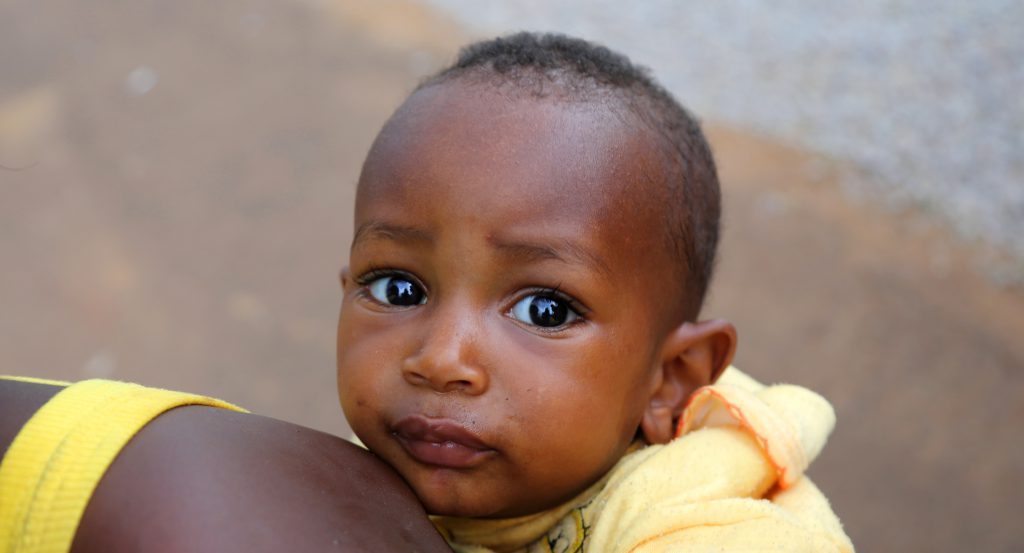
Moreover, obtaining a birth certificate is not always free, as it should be (Conseil des droits de l’homme, 2020). Finally, a law is not as effective when it is not understood by the population to which it applies. Because of the high rate of illiteracy in Guinea, parents may face various barriers in registering the birth of their children. Some parents may not realise the importance of a birth certificate simply because they are not familiar with administrative procedures (Comité des droits de l’enfant, 2019).
Moreover, even when children are registered, they may not receive a birth certificate, something that contributes to the circulation of false documents (Comité des droits de l’enfant, 2019). Guinea should provide more resources to the National Directorate of Civil Status to combat these issues (Comité des droits de l’enfant, 2019). It should be noted that children without a birth certificate and registration cannot easily prove their relationship to the country and, therefore, their access to state protection is prevented.
Risk Factors -> Country-specific challenges
Female Genital Mutilation (FGM)
On a political level, Guinea has committed to opposing female genital mutilation (FGM) through the adoption of a national strategic plan (2019-2023), with the objective of putting an end to the practice (Conseil des droits de l’homme, 2020). FGM is illegal in Guinea, and the government has started an awareness-raising campaign to educate the population on the dangers it involves (Conseil des droits de l’homme, 2020).
Nonetheless, the number of girls affected by FGM is still high and on the rise (ONU, 2019). It is imperative that the country strengthens both its legislative framework and its awareness-raising strategy relating to this practice, especially among religious leaders (Conseil des droits de l’homme, 2020), regardless of the stance taken by some of them (Comité des droits de l’enfant, 2019).
Child Marriage
Articles 319 and 320 of the Penal Code (Comité des droits de l’enfant, 2019) have now criminalised child marriage and forced marriage (Conseil des droits de l’homme, 2020). However, the legislation is insufficient to combat this issue. Many early marriages involve Guinean girls, and particularly those from low-income households (Comité des droits économiques, sociaux et culturels, 2020). According to Hadja Mariame Diallo, president of “Raby et les Enfants” (“Raby and the Children”), a children’s rights organisation, COVID-19 has further reinforced the practice of child marriage.
With the closure of public institutions, informal unions (that is, those not recorded in civil registers), have proliferated (Mosaique Guinée, 2020). As recommended by the Committee on the Rights of the Child in 2019 and the Human Rights Council in 2020, it is imperative that the Guinean legislative framework prohibit child marriage in all its forms, without allowing any exceptions (Conseil des droits de l’homme, 2020).
Child Labour in Mines
Due to its many natural resources, the economic development of Guinea relies a great deal on the mines (Human Rights Watch, 2019). Apart from its devastating impact on the environment, mostly due to water pollution, the lack of control on mining activities results in numerous human rights violations (Human Rights Watch, 2019). Unfortunately, children are not spared such violations. The Committee on the Rights of the expressed its concern regarding the exploitation of children working in mining activities. There is evidence of child labour in its worst forms (Comité des droits de l’enfant, 2019).
Working conditions in the mining industry are dangerous. Children are constantly exposed to harmful substances and to the risk of dropping out of school (Comité des droits de l’enfant, 2019). Referring to Guinean mines, in 2019, Vice President of the Committee on the Rights of the Child, Renate Winter, declared that “they [children] work too hard, too long, too young, and they have no opportunity to go to school and learn other things, to find a job, nothing at all ” (ONU, 2019). Therefore, Guinea must take urgent measures to control mining activities, ban child labour in mining, and punish those responsible for such exploitation (ONU, 2019). The government should also implement a programme to reintegrate children back into the school system (Comité des droits de l’enfant, 2019).
Child prostitution is another concerning issue in the country. There is a concerning lack of data on child prostitution that does not allow the full evaluation and review of the progress of the situation expected from the ratification of the Optional Protocol to the Convention on the Rights of the Child on the Sale of Children, Child Prostitution and Child Pornography (Comité des droits de l’enfant, 2017).
Discrimination
Many people in Guinea are victims of discrimination. Moreover, the country does not have a general anti-discrimination legislation (Comité des droits économiques, sociaux et culturels, 2020). Many groups of children are victims of discrimination, including girls who have not undergone FGM, homosexual, bisexual, transgender and intersex children, children with a criminal conviction, and children living in rural areas and/or in poverty (Comité des droits de l’enfant, 2019). Homosexuality is still illegal in Guinea under article 274 of Guinea’s 2016 Penal Code (Comité des droits de l’homme, 2018). Girls are particularly exposed to discrimination.
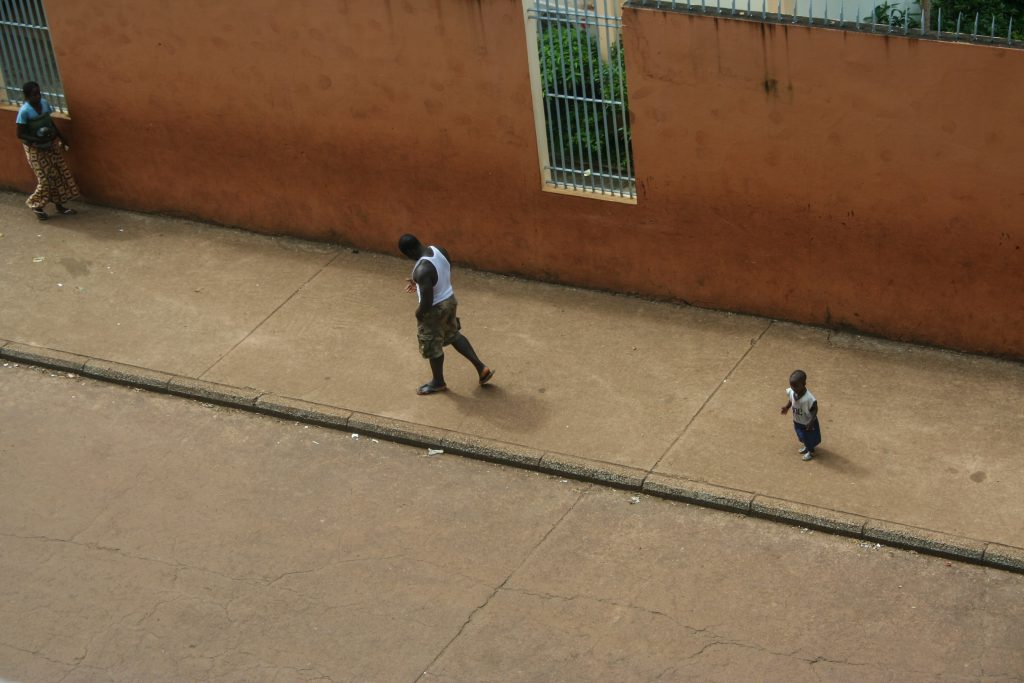
Health is also a common reason for discrimination, affecting mostly children with disabilities, children with albinism, children with Ebola or HIV / AIDS (Comité des droits de l’enfant, 2019). Guinea is making efforts in this area. For example, in 2019 a new law was introduced to protect the rights of people with albinism. However, the Human Rights Council has urged Guinea to step up its efforts to implement the law in practice (Conseil des droits de l’homme, 2020).
Child Trafficking
Guinea has set up a National Committee for Combatting Trafficking in Persons and Related Practices as well as a National Unit for Combatting Trafficking in Persons. However, Guinea’s commitment to combatting human trafficking is “sporadic and modest” (Comité des droits de l’homme, 2018). Many Guinean children are recruited into prostitution networks or domestic work in many countries, especially in North Africa and the Middle East (Comité des droits de l’homme, 2018).
The few data available in this regard suggest that while child trafficking is a major issue in Guinea, in the vast majority of cases perpetrators go unpunished (Comité des droits économiques, sociaux et culturels, 2020). Moreover, victims of trafficking are left without support or assistance to escape from traffickers, readjust, and reintegrate into daily life. (Comité des droits économiques, sociaux et culturels, 2020). The fight against human trafficking in Guinea lacks human, technological, and financial resources (Conseil des droits de l’homme, 2020).
Written by Juliette Bail
Translated by Maria Antonietta Giglio
Proofread by Sharon Rees
Last updated on 25 November 2020
References:
Comité pour l’élimination de la discrimination à l’égard des femmes. (2014). Observations finales concernant les septième et huitième rapports)périodiques (présentés en un seul document) de la Guinée.
Comité des droits de l’enfant. (2017). Observations finales concernant le rapport soumis par la Guinée en application du paragraphe 1 de l’article 8 du Protocole facultatif à la Convention relative aux droits de l’enfant, concernant l’implication d’enfants dans les conflits armés.
Comité des droits de l’enfant. (2019). Observations finales concernant le rapport de la Guinée valent troisième à sixième rapports périodiques.
Comité des droits de l’enfant. (2017). Observations finales concernant le rapport soumis par la Guinée en application du paragraphe 1 de l’article 12 du Protocole facultatif à la Convention relative aux droits de l’enfant, concernant la vente d’enfants, la prostitution des enfants et la pornog.
Comité des droits de l’homme. (2018). Observations finales concernant le troisième rapport périodique de la Guinée.
Comité des droits économiques, sociaux et culturels. (2020). Observations finales concernant le rapport initial de la Guinée.
Conseil des droits de l’homme. (2020). Rapport du Groupe de travail sur l’Examen périodique universel – Guinée.
Guinée. (s.d.). Consulté le novembre 2020, sur La Banque mondiale.
Human Rights Watch. (2019). Guinée : Événements de 2018. Récupéré sur Human Rights Watch.
[1] For further information, see Doura (2020, novembre 22). Journée internationale des droits de l’enfant : témoignages chocs de plusieurs enfants en situation difficile (Reportage). (World Children’s Day: shocking testimonies of children in difficult situations). Available in French and selectable in English.
[2] In no way does this article purport to give a full or representative account of the rights of the child in Guinea; indeed, one of the many challenges is the lack of up-to-date information on children. This article is mainly based on sources from the United Nations that need to be corroborated with resources from other organisations.

